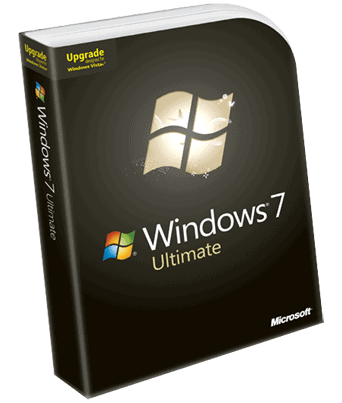Windows 7 Editions: Windows 7 Ultimate

Windows 7 Ultimate is the last Windows 7 edition that we would like to review in our little series. This is the only consumer edition of Windows 7 that offers all features of the operating system.
Some users might wonder about Windows 7 Enterprise and how it compares to Windows 7 Ultimate: The answer is simply that they are the same versions that Microsoft markets under different names to different target markets.
Windows 7 Ultimate costs roughly $20 more than Windows 7 Professional and users who were thinking about buying Windows 7 Professional might want to read on to find out if the extra $20 might be well invested after all (price is for the retail version).
Please note that we are comparing Windows 7 Ultimate to Windows 7 Professional in this article.
Check out our Windows 7 Home Premium article if you wish to review the differences to Windows 7 Home Premium.
Windows 7 Ultimate
Windows 7 Ultimate comes with all features of Windows 7 Professional and then some including:
- Aero glass remoting
- Windows Media Player multimedia redirection
- Audio recording over Terminal Services
- Multi-display Terminal Services
- Enterprise Search Scopes
- AppLocker
- BitLocker Drive Encryption
- BranchCache Distributed Cache
- DirectAccess
- Subsystem for Unix-based Applications
- Multilingual User Interface Pack
- Virtual Desktop Infrastructure (VDI) Enhancements
- Virtual Hard Disk Booting
Many of these features require some explanation as it might not be instantly clear what they are about:
- Aero glass remoting: Aero Glass remoting provides a user experience in a remote session that is comparable to a local session [
source] - Windows Media Player multimedia redirection: Windows Media Player Redirection enables content hosted in Windows Media Player to be redirected to the client for decoding on the users’ computers. This improves the quality of the video and ensures that video and audio are always in sync. This works for both full Windows Media Player and Windows Media Player controls hosted in Web pages. [
source] - Enterprise Search Scopes: Enterprise Search Scopes make it easy to discover and search content on intranet portals. [
source] - AppLocker: a set of Group Policy settings that evolved from Software Restriction Policies, to restrict which applications can run on a corporate network, including the ability to restrict based on the application's version number or publisher [source]
- BitLocker Drive Encryption: Contrary to the official name, BitLocker Drive Encryption is a logical volume encryption system. A volume may or may not be an entire drive, and can span one or more physical drives. Also, when enabled TPM/Bitlocker can ensure the integrity of the trusted boot path (e.g. BIOS, boot sector, etc.), in order to prevent most offline physical attacks, boot sector malware, etc. The latest version of Bitlocker, included in Windows 7 and Windows Server 2008 R2, adds the ability to encrypt removable drives. [source]
- BranchCache Distributed Cache: Decrease the time branch office users spend waiting to download files across the network. [
source] - DirectAccess: Give mobile users seamless access to corporate networks without a need to VPN. [
source] - Subsystem for Unix-based Applications: Subsystem for UNIX-based Applications (SUA) is a source-compatibility subsystem for compiling and running custom UNIX-based applications on a computer running a Windows server-class operating system. You can make your UNIX applications fully interoperable with Windows in SUA with little or no change to your original source code. [source]
- Multilingual User Interface Pack: Create a single OS image for deployment to users worldwide. [
source] - Virtual Desktop Infrastructure (VDI) Enhancements: Improved user experience for VDI with multimon and microphone support, which have the ability to reuse virtual hard drive (VHD) images to boot a physical PC. [
source] - Virtual Hard Disk Booting: Capability to boot from virtual hard disks
Those are the additional features. Some of them could be quite useful for end users like the multilingual user interface or Bitlocker drive encryption. Most features on the other hand make only sense in computer networks.
Now that we have reviewed the three editions of Windows 7: Which did or would you buy and why?




















